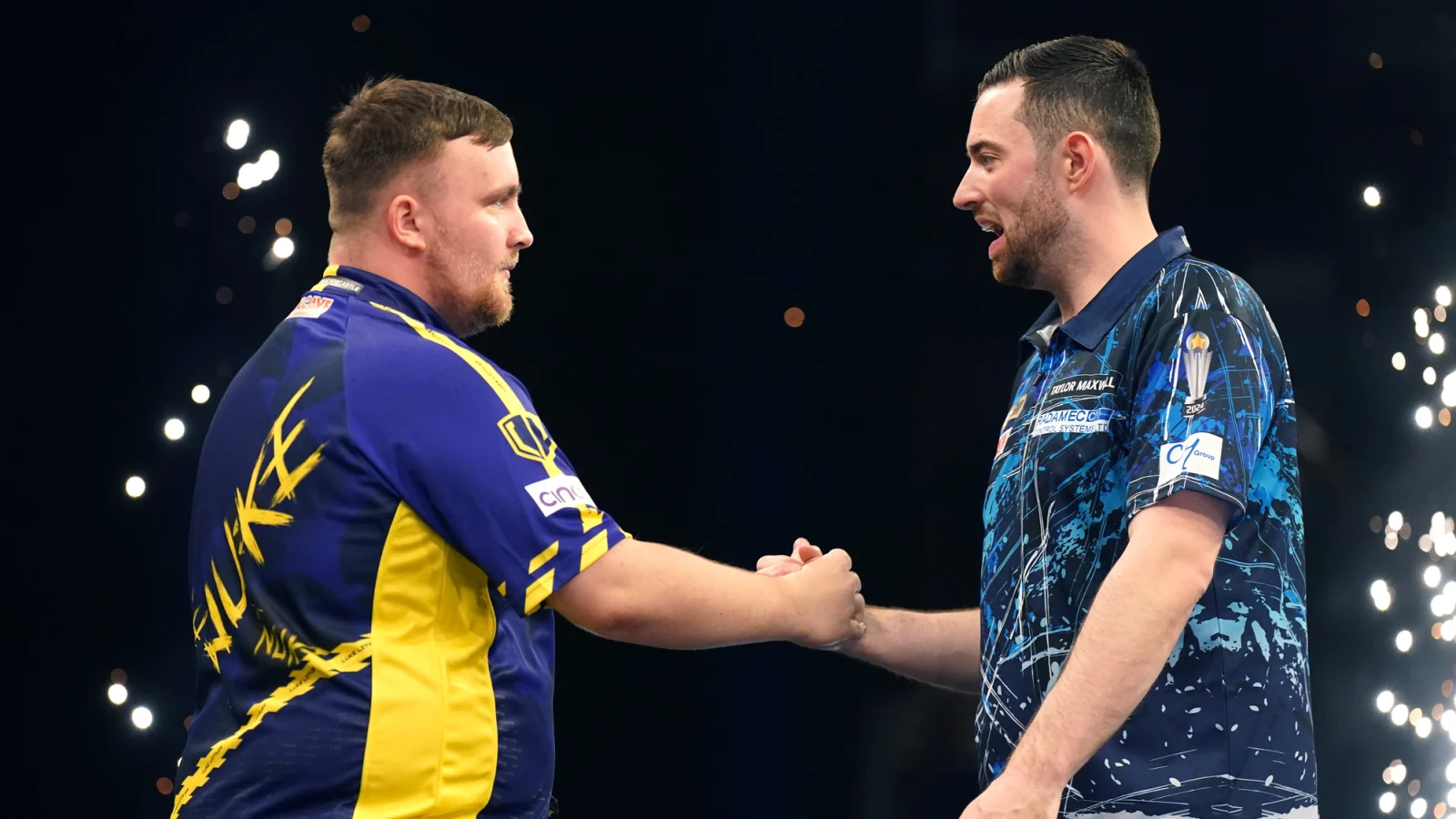
In the fast-paced, high-stakes world of professional darts, emotions often run as hot as the tungsten tips of the players’ darts. But recently, an unexpected camaraderie has emerged between two of the sport’s brightest stars—Luke Littler and Luke Humphries—sparking intrigue and debate among fans. At the heart of this story is Humphries’ candid admission of feeling “emotionless” amid a grueling schedule, a sentiment that Littler, his younger rival, has publicly supported. The exchange has shed light on the unseen toll of the darts calendar and ignited discussions about the physical and mental demands placed on its top competitors.
Luke Humphries, the current World Number 1, has been a dominant force in darts, his precision and consistency earning him accolades and a legion of followers. Yet, after a taxing final in Newcastle, the 30-year-old opened up about the exhaustion creeping into his game. “It’s not good to see a player like Luke Humphries, the world No.1, admit he’s struggling,” one observer noted, capturing the surprise and concern rippling through the darts community. Humphries didn’t mince words, describing how the relentless pace of tournaments left him feeling drained, a shadow of the fiery competitor fans have come to expect. His “emotionless” comment wasn’t a throwaway line—it was a raw glimpse into the human cost of staying at the top.
Enter Luke Littler, the teenage prodigy dubbed “The Nuke,” who has taken the darts world by storm with his fearless play and meteoric rise. At just 18, Littler has already faced off against Humphries in high-profile matches, their rivalry marked by mutual respect rather than animosity. Following the Newcastle final, Littler didn’t hesitate to back his competitor’s stance. “I support Luke Humphries in his emotionless statement,” Littler declared, a surprising show of solidarity that caught the attention of fans and pundits alike. For Littler, the sentiment hit close to home. He admitted to feeling the same fatigue after the match, though he hinted that his youth and perhaps a more strategic approach to scheduling might have softened the blow.
The backdrop to this unfolding drama is the punishing darts calendar, a topic that’s been simmering in the sport for some time. Players like Gerwyn Price, another heavyweight in the game, have been vocal about the issue for over a year, pointing to the relentless cycle of tournaments that leaves little room for recovery. Humphries and Littler’s shared exhaustion after Newcastle only amplified these concerns, turning a personal struggle into a broader conversation. For Humphries, the world champion, the stakes are even higher—every match carries the weight of expectation, every off-day scrutinized by a global audience. Littler, meanwhile, is navigating the delicate balance of youthful ambition and the physical limits of a schedule that doesn’t discriminate by age.
What makes this moment particularly compelling is the dynamic between the two Lukes. On the oche, they’re fierce competitors, each vying for supremacy in a sport that rewards razor-sharp focus. Off it, they’ve shown a rare willingness to connect over a shared challenge, bridging the gap between veteran and rookie. Littler’s empathy for Humphries underscores a maturity beyond his years, while Humphries’ vulnerability reveals the cracks in even the most polished champions. “Both Luke Humphries and Luke Littler admitted to each other about feeling tired,” one account noted, painting a picture of two athletes finding common ground amid the chaos of competition.
The reaction from the darts world has been mixed. Some fans see Humphries’ admission as a sign of weakness, a chink in the armor of a titleholder who should rise above the grind. Others applaud his honesty, arguing it’s a wake-up call for the sport’s organizers to rethink the schedule. Littler’s support has only fueled the debate, with some praising his sportsmanship and others questioning whether he’s simply riding the wave of Humphries’ headline-making moment. Regardless, their exchange has humanized a sport often reduced to its flashy moments—the roaring crowds, the 180s, the dramatic finishes—and reminded everyone that even the best feel the strain.
As the darts season rolls on, the spotlight will undoubtedly stay on Humphries and Littler. Can the world champion rediscover his spark, or will the schedule continue to sap his fire? Will “The Nuke” maintain his explosive energy, or will the grind eventually catch up to him too? For now, their shared stance has given fans something more than just a rivalry to chew on—it’s a glimpse into the resilience and fragility of those who throw for glory. In a sport where every dart counts, it turns out the players’ voices might matter just as much.
Leave a Reply